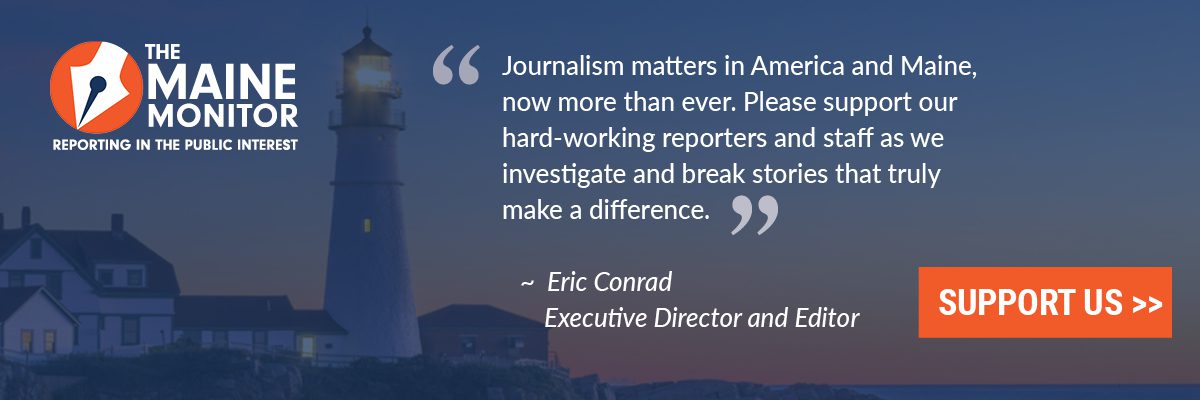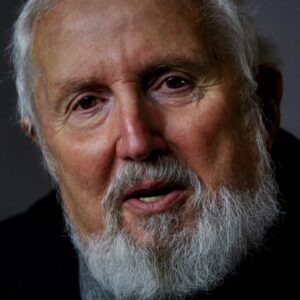Maine is enhanced by its unique natural environment, demography and scale. Large in area, small in population, it resembles an island that has for its history been shaped by an ethos centered on the connection between land and sea through enterprise, resources, independent thinking, invention, work and purpose. The values, structures, and behaviors have served the past, and in this troubled present will serve us again for a future necessarily transformed by the necessities of climate change and its financial and social consequence.
 It is a matter of vision and governance. It requires a plan beyond the limits of immediate needs and responses to external politics and finance. The Maine Legislature and the various appointed task forces are at work from the inside out, taking short-term steps toward near-term solutions. The recent record demonstrates the foresight, compromise, and collaboration required to meet the future needs and protections – broadband, public health, education, infrastructure – already identified as immediate necessity and necessary action for the near-term future. That is what good governance is, and we are fortunate today to have common interest and bipartisan leadership in that direction.
It is a matter of vision and governance. It requires a plan beyond the limits of immediate needs and responses to external politics and finance. The Maine Legislature and the various appointed task forces are at work from the inside out, taking short-term steps toward near-term solutions. The recent record demonstrates the foresight, compromise, and collaboration required to meet the future needs and protections – broadband, public health, education, infrastructure – already identified as immediate necessity and necessary action for the near-term future. That is what good governance is, and we are fortunate today to have common interest and bipartisan leadership in that direction.
But the need and urgency are greater than adaptation and mitigation of present circumstance. If we are to survive the challenges we face, it will require invention, the creation of new systems, new technologies, new skills, and new resolve to accept, indeed, to shape change. Maine is perfectly placed to envision and engineer such progress, for itself and as a model of public and private engagement for others.
For Maine, critical climate change may be seen as an opportunity to recombine its inherent natural and human capacity into six areas of initiative: novel energy production and distribution, water management, food security, virtual business development, recreation and quality of life.
Energy has made a modest start, with offshore wind and localized solar, but it is seriously under financed and incentivized. To succeed will need far more dramatic investment, regulatory support, and vocal leadership to achieve its inherent potential: To provide renewable, clean energy for internal provision and export. But there is so much more capacity available: ocean geothermal, wind and tide generation, and salinity gradient power are all examples of technology that could serve our collective needs if prioritized and capitalized to scale.
Lush resources at hand
Maine is a water-rich state, with amazing natural sources available through a statewide watershed and aquifer. Climate may bring more rain, and understanding the power of the fresh-water-ocean connection as source of the most important natural resource on earth is essential to our ongoing health, new economy, and future quality of life. We export water for a pittance, a false short-term economy that depletes far more than it serves. Statewide water management is a must.
Food security is well advanced as a function of organic, small-scale farming, research adaptation to climate factors for traditional agriculture, sustainable fisheries and aquaculture. Maine could be protein self-sufficient in the near future, immune to dependency on industrial agriculture, returning respect to the land and sea as a source of employment, sustenance, and well-being. Organic farming and localized food networks are established and new agricultural products can be introduced to enhance an encouraging beginning. Aquaculture is an essential part of both future local consumption and export.
The call for adequate universal broadband access to the internet will connect Maine to the world as it has never been before. Telehealth will improve the quality, efficiency, and focus of our medical services and community health. Business development through global connection will soar bringing climate refugees with new ideas and capital, new skills and employment, and community development – perhaps even bringing our children who sought opportunity elsewhere back home, young families, better schools, vital colleges and universities, and generational succession for an aging population and dated economy. Start-ups, and the need for vocational support of these and traditional trades, demand curriculum revision and training programs now.
We are poised at the threshold of re-creation. Tourism will expand as a force to preserve our astonishingly rich wilderness. Nature will return as an elemental force, for well-being, so long understood by Maine’s native peoples. Our cultural values, and institutions, will thrive as local centers for creativity and expression, for exchange and understanding of our changing population in our changing world. Maine must support the arts far beyond present levels and incentivize innovation. Our quality of life must be revitalized, not by nostalgia and empty tradition, but by an active prescience and inspirational collaboration to synergize public and private individuals and institutions with a spirit of place where vision and change are welcome.
How can we do this? If we can declare our values and premises, then we can build structure around intent; we can create a State of Maine based on the definition of human ecology: “An integrated, interdisciplinary process built around the relationship between humans and their natural, social, and built environments.” What steps can we take? We can establish a multi-disciplinary agency to generate a statewide eco-regional plan. We can evaluate, reorganize, and consolidate our administrative departments for re-direction and efficiency. We can assign our budget and capital instruments toward specific implementations and incentives. We can shape our educational services to train new employees for new disciplines. We can engage our public institutions and private partners to focus programs and investments on coherent, mutually reinforcing objectives and actions under the impetus of an intentional renaissance and a communal vision for “the way life should be.”
What does success require? New Year resolve. Mutuality and equity. Compromise and collaboration. Risk and courage. Energy and imagination. Vision and enterprise.
Dirigo. To lead.








